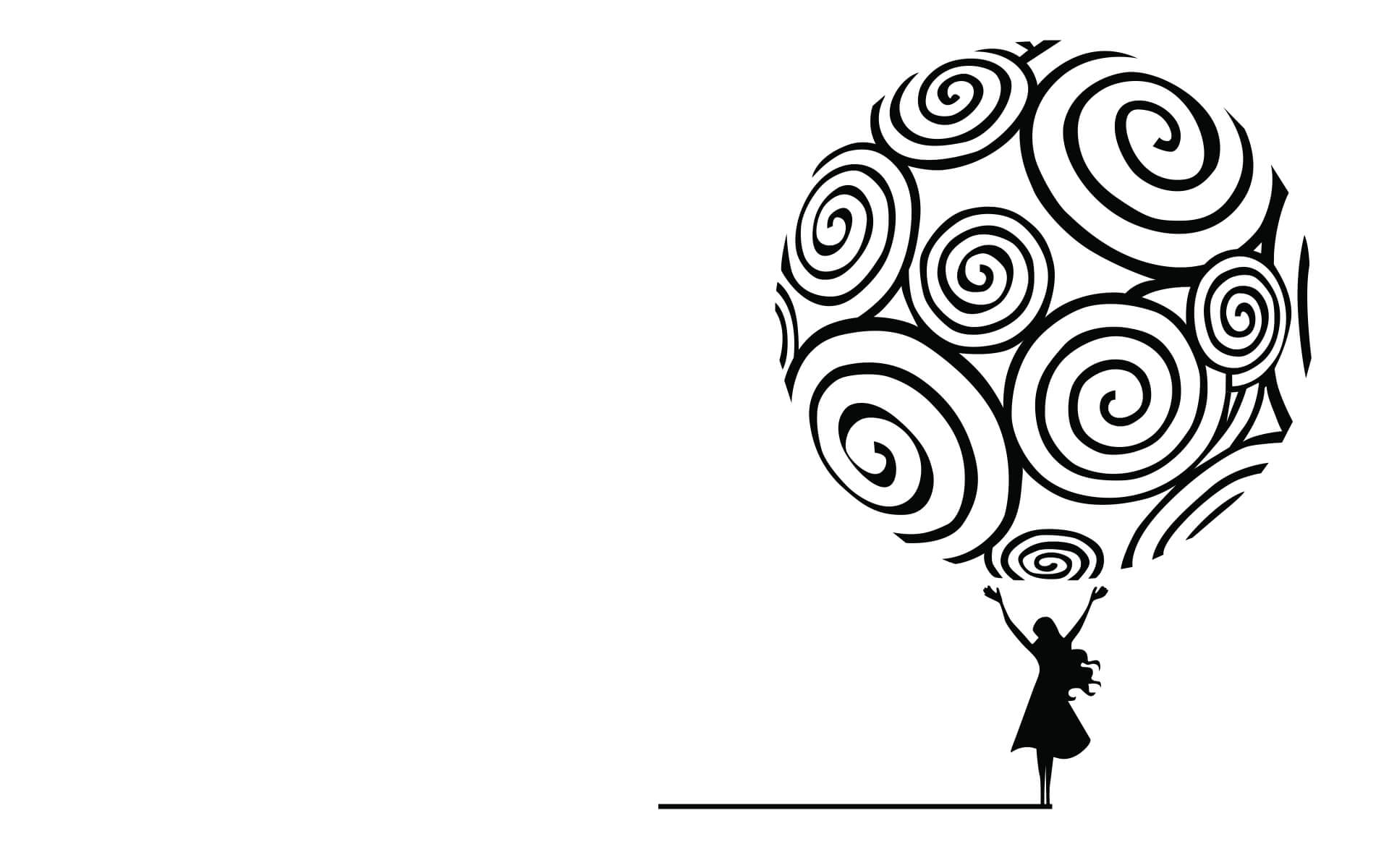“Our mothers never told us there’d be days
(and weeks and months and years) like this…”
— What Flesh is Heir To, by Moira Egan
No one tells you that if you are a woman, 40–45 marks a life event as clearly as 10–13 did. For me, it was at 43. Overnight I went from a fertile young healthy woman in the prime of her youth to an iffy-fertile weepy middle-aged woman with unpredictable moods, sleepless nights and allergies galore.
Google informed me it was perimenopause. I consulted my gynaecologist for a second opinion, hoping Google was off base. Instead, she concurred, prescribing a few supplements, “non-hormonal” meds for mood regulation (What!) and a pelvic scan.
It was bewildering. When had I crossed over? Why had my body begun to dry up? I had so many plans for the future. What did this imply for these?
Menopause is when a woman stops menstruating. It marks the end of her fertility period and is attained when one does not have her period for 12 months at a stretch. Perimenopause is the period of upto ten years before menopause, when the body begins preparing for this life event.
Though the intensity differs, most women are affected by perimenopausal hormonal fluctuations both in mind and body. Some physical symptoms are irregular periods, hot flushes, insomnia, bloating, worsened PMS, fatigue, incontinence, vaginal dryness, loss of sex drive and weight gain. A few psychosocial symptoms are irritability, mood swings, depression, increased anxiety and feeling overwhelmed.
This phase of life also coincides with several other significant life events: children leaving home/appearing for board exams/of marriageable age, aging parents, financial loans, career concerns, etc. As a result, though women realise something is off, there is no time/energy to understand why. This comes at a great cost: it adversely affects not just the woman’s well-being but her marital and other relationships as well.
While recently, there have been giant strides towards preparing young girls for menstruation, the same is not true for the women at the other end of menstrual life. So, all symptoms are swept under the broad carpet of other concerns.
Further, the taboo of talking about menstruation extends to issues around menopause. While recently, there have been giant strides towards preparing young girls for menstruation, the same is not true for the women at the other end of menstrual life. So, all symptoms are swept under the broad carpet of other concerns, while each struggles individually in their siloed lives.
As I came to terms with personal implications of perimenopause, I noticed others seemed to be struggling as well. Every time I brought up my symptoms in conversation, the response was: “You too! I thought I was the only one!”
One confessed that she now uncharacteristically burst into tears over “small things”; another told me how she was just not able to keep the weight off with thus far tried and tested methods; yet another told me she felt unusually tired and exhausted but found it difficult to sleep. Everyone reported thinking this experience was unique to them; that they were making too much of a molehill. Everyone felt puzzled: our sense of being able-bodied poised women was suddenly rife with feeling overwhelmed and out of control.
The relief at realising that what one was experiencing was normal, that one was not alone, was palpable. It was often followed by an exchange of hilarious accounts of how we now forget the rice is on the stove, or spend hours searching for keys we kept safely somewhere, or for our new long-sighted glasses. Then we’d swap home remedies and methods of combating what was now our shared experience.
For me too, this sharing was hugely reassuring. I realised whatever this was, it was a God-determined phase of life, which meant God had a plan for it already.
However, there are few role models in the Bible that address this particular issue. The closest mention to menopause is perhaps in verse Genesis 18:11, where “it had ceased to be with Sarah after the manner of women”. Then there is Ruth 1:11: “But Naomi said, “…Am I going to have any more sons…?” And Zechariah describing Elizabeth as being “well along in years.”
In all these instances, the contextual focus was the woman’s inability to bear children. In the biblical patriarchal culture, the value of the woman was innately connected to her fertility. In fact, Naomi is celebrated at the end of Ruth as now having been blessed with a son (even though it is in reality Ruth’s son, Obed). There are even those who believe that God “healed” Sarah and Elizabeth when they subsequently conceived. The unspoken understanding is that the post-menstrual state is not contributive to life.
This in itself is not very comforting. However, the Bible does offer two general directions that menopausal women can draw from.
The first is the series of reassurances from God Himself, that God does not abandon one because their youth has passed by: Isaiah 46:4; 2 Corinthians 4:16 and Job 5:26. In fact, God has decreed a specific place of honour and care for “elders”: Job 12:12, Proverbs 16: 31 and 1 Peter 5:5. From these verses, we gain strength in God’s promise that even now, when we are neither elderly nor youth, we are each still being groomed by God for a definite role within the church and in eternity.
…the call for Christians to exist and operate within community. The divine plan and provision God has put in place for menopausal issues is the church. God has instituted clear instructions in verses like Hebrews 10:24–25 of how this support network is to work.”
The second is the call for Christians to exist and operate within community. The divine plan and provision God has put in place for menopausal issues is the church. God has instituted clear instructions in verses like Hebrews 10:24–25 of how this support network is to work.
Except no one was as yet using it to help women cope with menopausal issues.
To help women like me, I conceptualised a series of five monthly sessions called “Press Pause.” These sessions were to be the “pause” that the participants would take from their busy ministry-filled lives. Through these, they would learn coping strategies for their menopausal issues while connecting with others. The hope was that “Press Pause” would normalise menopausal conversations and experiences, and generate prayer and emotional support that would outlast the sessions.
The first session established a common ground by allowing for the sharing of deep physical and psychological struggles in a non-threatening manner. This was followed by three sessions with additional resource persons: a general physician who explained to us the workings of a woman’s body and the whys of perimenopause, a dietician who told us how we could manage our symptoms and nurture our bodies for healthy living, and a psychologist who led us through exercises of how to deal with our emotional and psychological struggles. All resource persons were Christian women who were going through the menopausal experience themselves. Their sessions were peppered with personal anecdotes and spiritual encouragement.
Each session ended with a take-home exercise geared towards practising what had just been learned in the session. A WhatsApp group that was daily updated kept the group connected in the days between sessions. It was a space for encouragement, sharing information and perimenopausal jokes, and readying oneself for the session to come.
The closing session focused on reflection of the four months, and what has been learnt. The women unanimously expressed their desire for the sessions to continue. Many wished similar sessions could be held for their husbands, so that their spouses could understand them better.
When word of the sessions spread, there were several enquiries from other women. To me, this reflects a crying need among women within the church, to understand their bodies and to congregate in support groups around these issues. It is a cry that is largely unheard at the moment and needs urgent attention. While menopausal challenges are a normal course of events, women can be given information and tools with which to navigate this phase with more equanimity and in community. This would mean healthier families, and a transparent fearless church, not bound by taboo and prudery but driven by a genuine desire to face real life challenges, in the power and provision of Christ.






